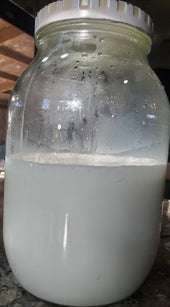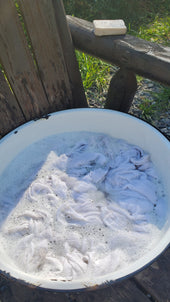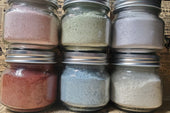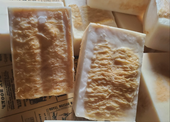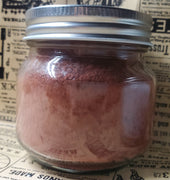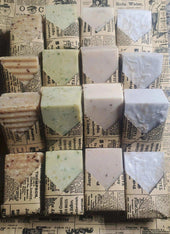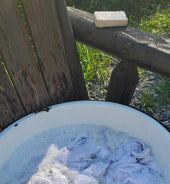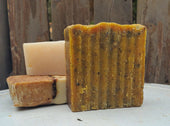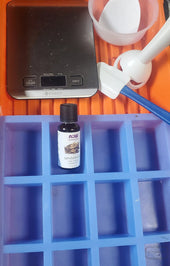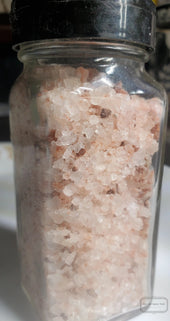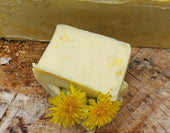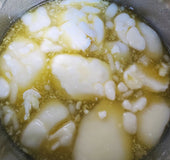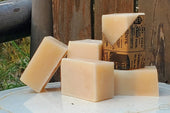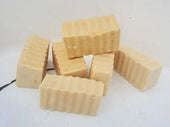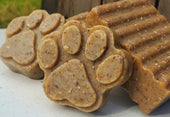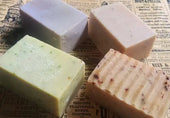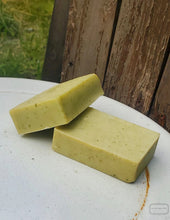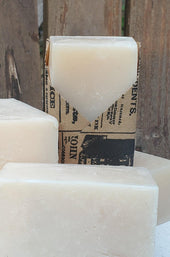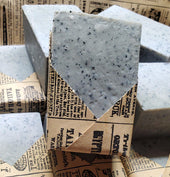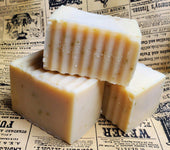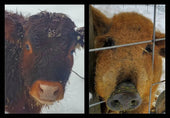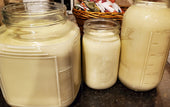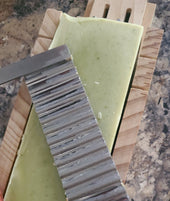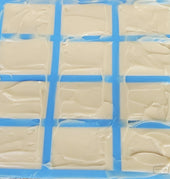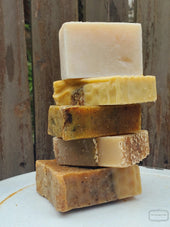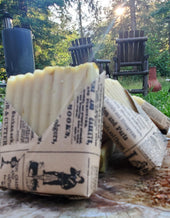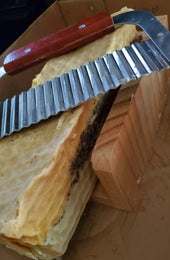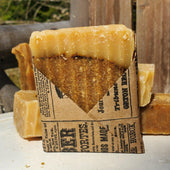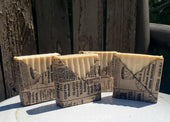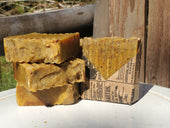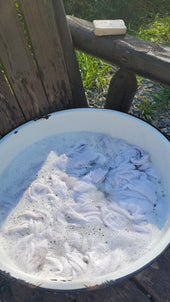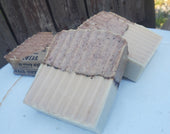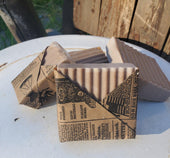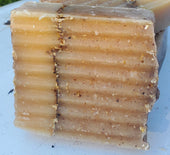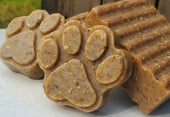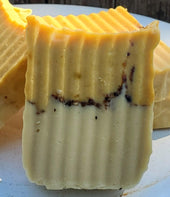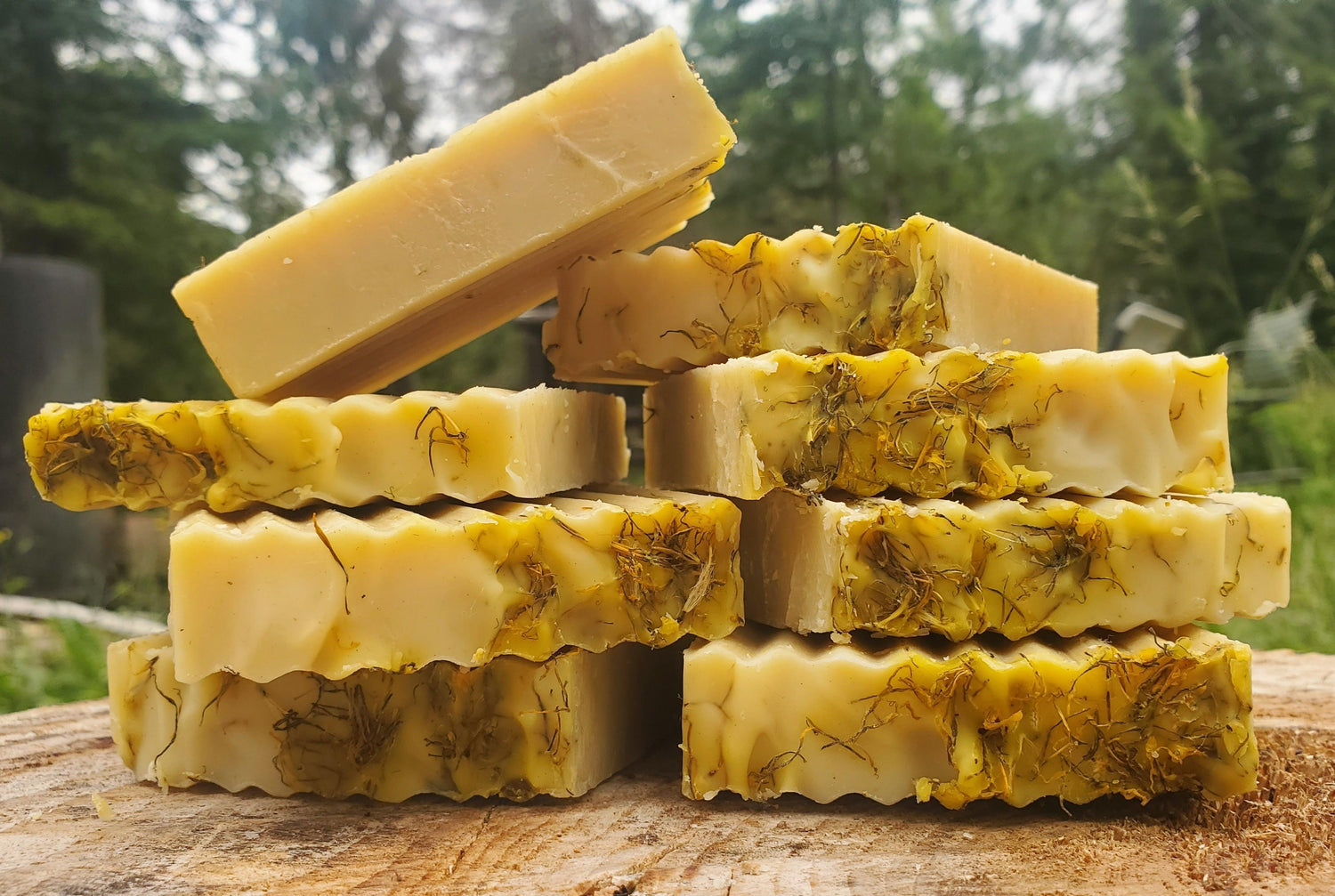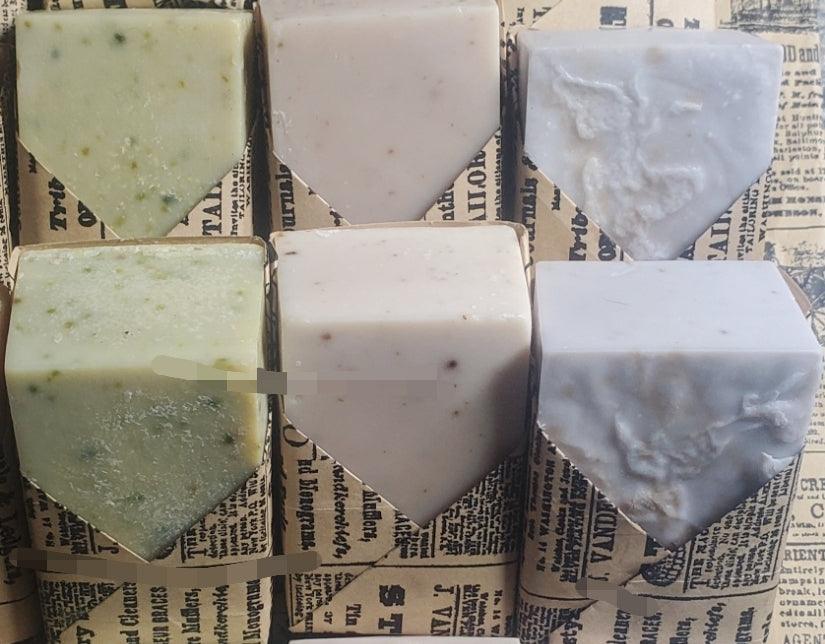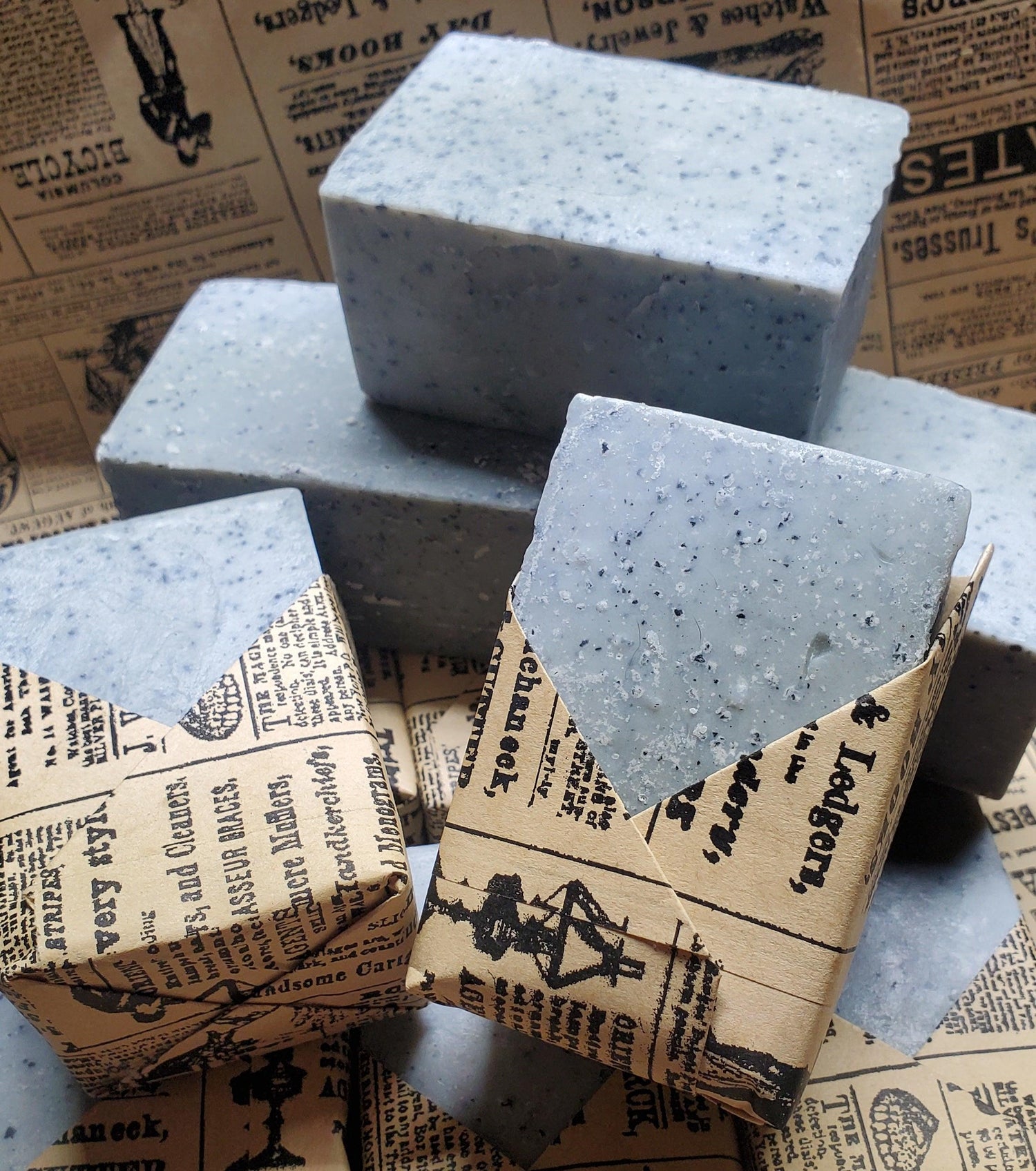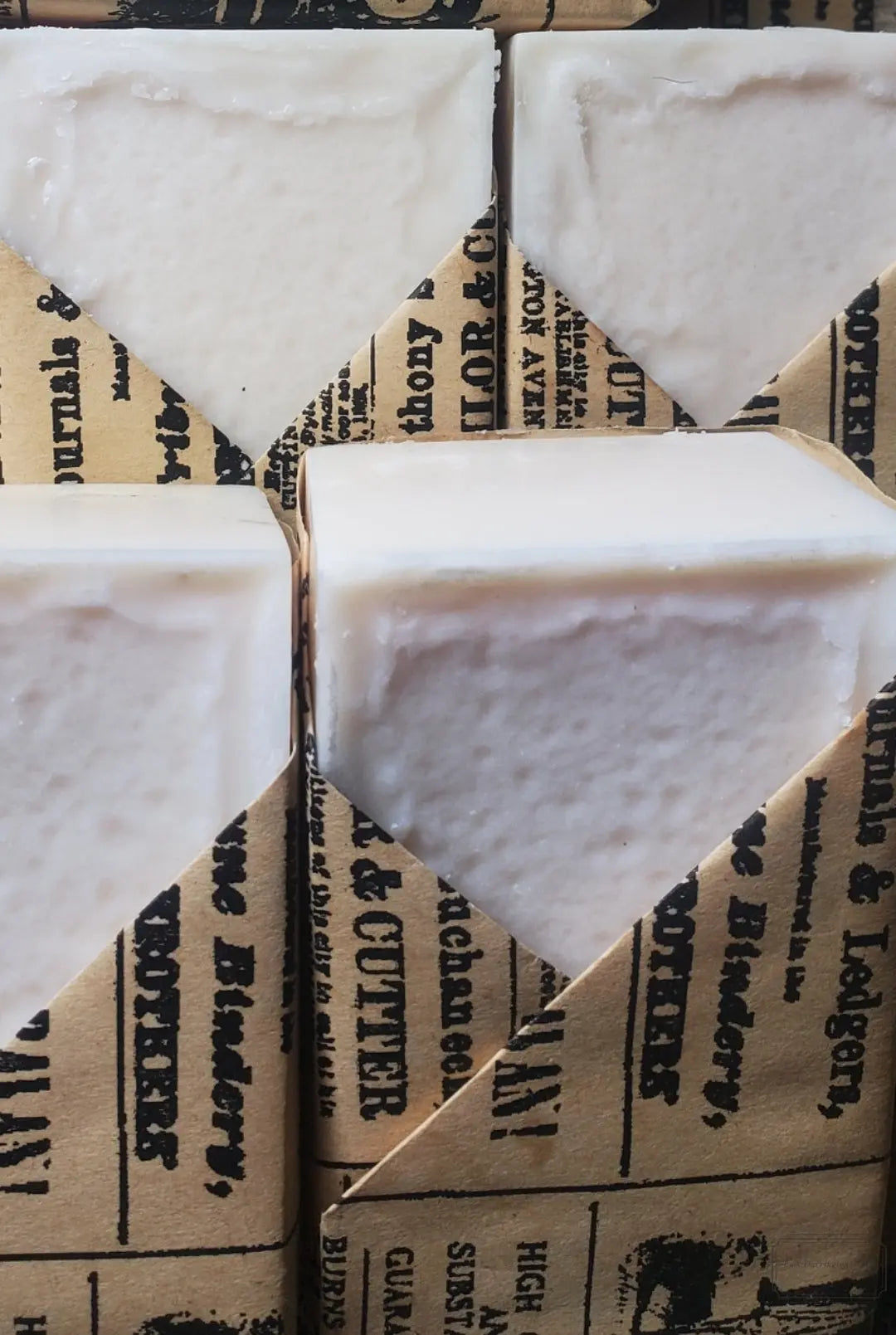
Breaking the Rules: Only Coconut Oil
Breaking the "Rules of Formulating" with Only Coconut Oil
Really, a pure coconut oil soap made for hair, hands and body?
-----Yes, with the use of a 20-30% superfat formulation.
But, isn't that very unusual for a soap formulation, and would that most certainly increase the risk of oxidation and rancidity, in addition, decrease the shelf-life, Right?
-----Well, in almost every other formulation, Yes,---but not this one!
Using Only Coconut Oil Soap
Coconut oil is a popular ingredient in many homemade and commercial soaps due to its hard-bar forming properties and its ability to create a rich lather. When used at a high superfat percentage, coconut oil soap can be incredibly gentle and moisturizing for the skin. For more information on Superfat, Check out our other Blog Posts.
Formulating for Success:
Experimentation is Key: Creating a successful soap made with only coconut oil for the oil portion, requires careful consideration of the superfat percentage.
According to the soap properties predicted by a common, handy dandy, soap calculator, a pure coconut oil soap creates a very "cleansing" soap. Usually, high cleansing numbers often equate to a soap that may cause drying and irritation.
Coconut oil soaps also go against the recommendation of using a lower coconut oil concentration.... Yet, after years of formulation experimentation, finally a very gentle and bubbly bar made with only coconut oil, an a simple lye liquid mixture. Find out more about Saponification in our Blog: Saponification Nation.
A High-Superfat, Skin-Loving Bar
To compensate for coconut oil’s excellent oil-busting ability, a high concentration of unsaponified oil and free fatty acids is key. By having this increased superfat percentage, a soap is created that is ultra-gentle and long lasting when stored properly.
What is Superfatting?
Superfatting is the process of leaving excess oils in the soap after saponification (the chemical reaction that turns oils into soap). This excess oil provides extra moisturizing benefits to the finished soap bar.
If you want to know more about Saponification and Superfatting, check out our Blog Posts on both.
Why Coconut Oil at a High Superfat?
Coconut oil is naturally comedogenic, meaning it has a low tendency to clog pores. However, when used with a high superfat percentage, the excess oil helps to condition and nourish the skin without irritating it.
Coconut oil contributes to a hard, long-lasting bar that won't melt quickly in the shower, when stored properly. Coconut oil is known for its excellent lathering properties, producing a luxurious and creamy lather.
Coconut oil soap, when formulated with a high superfat percentage and proper techniques, can create a long-lasting, hard, and incredibly lathering bar.
Thanks for Reading! -- The Lazy Dairy Maid
Author: Lazy Dairy Maid --
Sharing a daily routine with these animals and nurturing the land has instilled a deep appreciation for natural ingredients and time-honored traditions, like bread baking, cheesemaking, and the art of cold process soap production.
Read More Here---Meet the Maker: Lazy Dairy Maid
Skin Sensitivity: Always do a patch test on a small area of skin before using any new soap.
Side Note: This blog post focuses on the use of Coconut Oil and its history. It does not delve into the specific properties of any soap itself, as those would fall under the purview of the FDA as cosmetics or drugs.
This blog post aims to inform it's readers about the use of Coconut Oil, it's history, and the craftsmanship involved in creating a natural and luxurious product.


